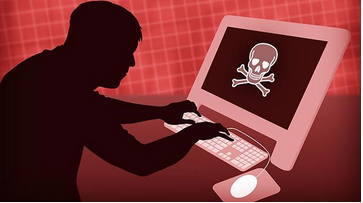My computer has yet to be hacked, knock on wood, but after recently hearing a hacking horror story that happened to a colleague of mine it got me thinking, how do I prevent my accounts or specifically my email from being hacked?
All too often we hear cases where high profile users of Gmail, including US government officials, reporters and political activists – have had their email accounts hacked. But don’t be naive and think that this only happens to the “big guys”. Email account hacking can happen to anyone at anytime and prevention is often better than the cure.
So, here are the steps should you take to reduce the chances of your Gmail account being hacked.
1. Secure your password
Having the same password for all of your different accounts is like giving your hackers a free a ride. The same password can become a skeleton key which opens every door. If hackers can grab onto your password in one place, they’ll be sure to try other places too.
 Choose a password that’s unique and hard-to-crack. If you close you eyes and randomly pick a word from the dictionary, there’s a big chance that your accounts can be invaded by dictionary attackers. Choosing a password that is personal, for instance your first pet’s name, is a smarter choice. Once you’ve decided on the secret code, keep it close to your heart and utilize password manager tools, in case you forget one of them.
Choose a password that’s unique and hard-to-crack. If you close you eyes and randomly pick a word from the dictionary, there’s a big chance that your accounts can be invaded by dictionary attackers. Choosing a password that is personal, for instance your first pet’s name, is a smarter choice. Once you’ve decided on the secret code, keep it close to your heart and utilize password manager tools, in case you forget one of them.
In some cases, no matter what the strength of your password those sneaky hackers find their way into your account. Sites like Google and Facebook already tell you about all recent logins, so you can make sure no one else is accessing your accounts. There’s also an app called LogDog that detects if there is a login from a suspicious location and alerts you. Through the app you can immediately change your password to prevent further access into your account and kick the hacker out by opting out all opened sessions in any other browser.
2. Set up a two-factor authentication
When hackers break into your account they grab both your username and password. The obvious thing to do would be to make your email require an extra piece of information before letting anybody access into your account. Check out two-step authentication setup instructions for Gmail, Microsoft’s Outlook.com and Hotmail and Yahoo!.
On a side note, the two step authentication process does not promise to keep out any snoopers. Try installing a spyware on your computer which alerts and monitors any suspicious action that appears on your screen. It’s certainly a great additional level of security for your email account, which helps to deter cyber criminals preying on you.
3. Don’t open unrecognizable emails
It’s probably a no-brainer, but you know by now not to open that email from an international domain with a overly captivating subject line saying you’ve won the lottery. This kind of spam is simple to avoid, as tempting as it may seem. If you are unsure about an email that seems legit, for example a job offer from Craigslist, trust your gut when checking unknown emails. If it feels weird, don’t click on it. More hackers are becoming sophisticated in how they write their emails these days, if the email appears too good to be true, Google it to see if there have been similar cases out there.
4. Check your email settings
Email hackers sometimes change the settings of your account to forward your emails to themselves. This way they can check for any emails that contain login info, bank statements, and personal messages.
Take the precautions by checking your mail forwarding settings to ensure no unexpected email addresses have been added. Second, look to see if the hacker has added their spammy signature to your mails. This will help them to continue their dirty business even after after they’ve been locked out. Lastly, make sure that your auto-responder hasn’t been changed to the out-of-office notification by those computer hijackers.
5. Scan your computer for malware
It goes without saying that you need to make sure that your computer is up-to-date with an anti-virus software. If you’ve neglected this small, but important detail, you’re setting yourself up for disaster. Hackers will have easy access into your computer to plant a poisonous code which could spy on you and your email account.
As time consuming as this may seem, before you log into any of your accounts such as your email or bank account, check that your computer is ‘healthy’. Especially if you use a computer at a cyber cafe or hotel lounge, you never know what state it may be in.
Image Credit: Jay Wennington




